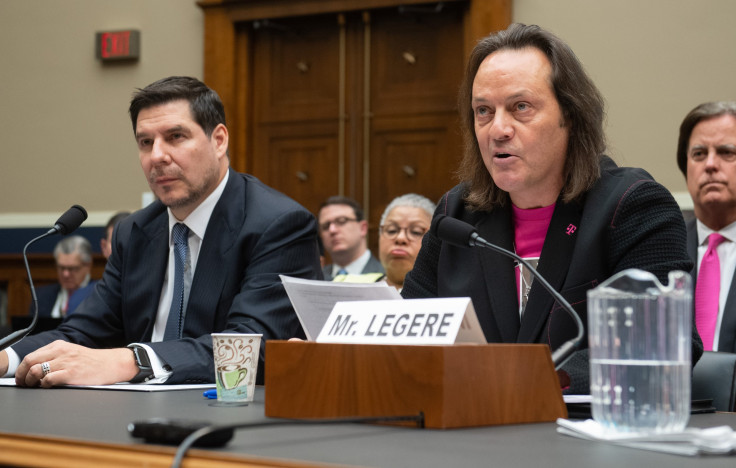Sprint, T-Mobile Stocks Fall Following Merger Rejection Reports

The U.S. Department of Justice (DOJ) is unlikely to approve the proposed $26.5 billion merger between Sprint and T-Mobile as it’s currently structured, said various media reports.
DOJ staffers cited by media outlets are said to have told both Sprint and T-Mobile the deal might not be approved under its current structure. What the DOJ found objectionable wasn’t specified but the fact DOJ staffers revealed it to both firms indicate serious misgivings that have to be addressed before the deal moves forward.
Sources inside the DOJ said a final decision hasn’t been made. Sprint, T-Mobile and the DOJ have refused to comment on the reports.
Shares of Sprint plunged as much as 12% in after-hours trading following the report. T-Mobile fell more than 4%.
Analysts note that one of the deal’s biggest stumbling blocks is it will deprive the U.S. of one telecom carrier in an industry comprising only four firms: Sprint, T-Mobile, Verizon and AT&T. The latter two are the market leaders
Sprint and T-Mobile have always claimed the merger is a must for the combined firm to compete against AT&T and Verizon. They’ve also argued the merger will help them provide greater access to 5G.
President Donald Trump has said the U.S. must win the 5G race. South Korea on April 5 launched the world’s first 5G network along with the world’s first 5G smartphone. The U.S. now competes against China to be the first to deploy 5G.
"If it is really important to the administration to be first in 5G and have a more robust set of infrastructure in the U.S. than China, Japan and Korea do, then they should let the deal go through," said Jonathan Chaplin, head of the US communications services research team at New Street Research.
"That's the path to the best 5G network we're likely to see in the U.S. and it will drive AT&T T and Verizon VZ to invest."
However, critics of the merger claim it will lead to massive job losses, weaker competition and higher prices for consumers, especially in rural America.
The two wireless companies agreed to a $26.5 billion merger in 2018
© Copyright IBTimes 2024. All rights reserved.





















